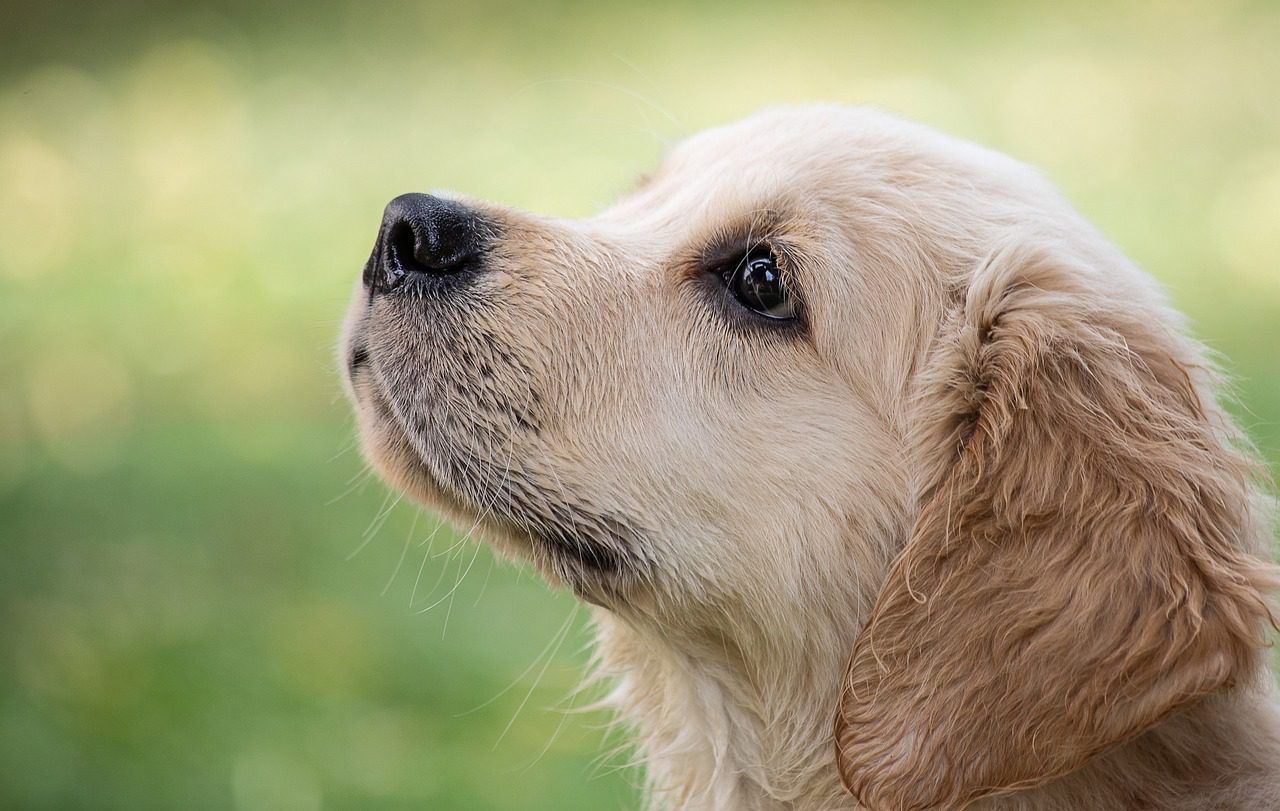If you're looking for unique and meaningful names for your new furry friend, Chinese dog names offer a rich cultural and linguistic inspiration. Discover the beauty of Chinese language as we present you with a collection of charming and distinctive names that will perfectly suit your beloved canine companion.
Key Takeaways:
- Chinese dog names often have meanings that reflect positive traits or characteristics.
- Many Chinese dog names are inspired by nature, such as flowers, animals, or natural elements.
- Some Chinese dog names are based on popular cultural references, including historical figures or famous fictional characters.
- The pronunciation and tone of Chinese dog names can greatly impact their meaning and significance.
- Choosing a Chinese dog name can be a way to honor and embrace the rich cultural heritage of China.
Common Chinese Dog Names: What are Some Popular Choices?
1. Traditional Chinese Names:
- Mei (美) - Meaning "beautiful."
- Bao (宝) - Meaning "treasure."
- Li (丽) - Meaning "pretty" or "elegant."
- Hua (花) - Meaning "flower."
- Long (龙) - Meaning "dragon."
- Ming (明) - Meaning "bright" or "shining."
- Chun (春) - Meaning "spring."
2. Names Inspired by Chinese Cuisine:
- Dim Sum
- Dumpling
- Wonton
- Sushi
- Noodle
- Tofu
- Sesame
3. Names Inspired by Chinese Cities and Landmarks:
- Beijing
- Shanghai
- Hong Kong
- Forbidden (inspired by the Forbidden City)
- Great Wall
- Terracotta (inspired by the Terracotta Army)
4. Names Based on Chinese Mythology and Folklore:
- Xi Wangmu (Queen Mother of the West)
- Sun Wukong (Monkey King)
- Nezha (Deity and protector)
- Bai Ze (Mythical creature)
- Zhu Bajie (Pig from Journey to the West)
- Nüwa (Creator goddess)
5. Martial Arts and Kung Fu-Themed Names:
- Bruce (inspired by Bruce Lee)
- Kung Fu
- Jet (inspired by Jet Li)
- Jackie (inspired by Jackie Chan)
- Shaolin
- Ninja
6. Names from Chinese Zodiac Signs:
- Rat
- Ox
- Tiger
- Rabbit
- Dragon
- Snake
- Horse
- Monkey
- Rooster
- Dog (If your dog was born in the Year of the Dog)
- Pig
7. Names Inspired by Chinese Colors:
- Hong (红) - Meaning "red."
- Lan (蓝) - Meaning "blue."
- Huang (黄) - Meaning "yellow."
- Bai (白) - Meaning "white."
- Hei (黑) - Meaning "black."
- Jin (金) - Meaning "gold."
8. Names Reflecting Chinese Philosophy:
- Tao (道) - Referring to Taoism and the Tao Te Ching.
- Yin (阴) and Yang (阳) - The balance of opposing forces.
- Wu Wei (无为) - Meaning "effortless action."
- Zen (禅) - Referring to Zen Buddhism.
9. Names from Chinese Art and Literature:
- Mulan (inspired by the legendary warrior)
- Confucius (philosopher)
- Li Bai (famous poet)
- Guan Yu (hero from the Romance of the Three Kingdoms)
- Cai Wenji (historical figure and poet)
10. Names Inspired by Chinese Symbols and Lucky Charms:
- Fu (福) - Meaning "luck" or "fortune."
- Hui (辉) - Meaning "radiance" or "glory."
- Chángshòu (长寿) - Meaning "longevity."
- Yuánbǎo (元宝) - A gold ingot symbolizing wealth.
- Shòulóng (寿龙) - Symbolizing the "dragon of longevity.
In China, dogs are cherished companions and naming them is an important task. There are certain names that have become quite popular among dog owners in China. One common choice for a male dog is "Wangcai," which means "prosperous wealth" in Chinese. This name reflects the desire for good fortune and abundance. Another popular name for male dogs is "Xiaohei," which means "little black" in Chinese. This name is often given to small, black-colored dogs.
For female dogs, the name "Baiyun" is a popular choice. It means "white cloud" in Chinese and symbolizes purity and beauty. Another common name for female dogs is "Meimei," which means "little sister" in Chinese. This name reflects the affectionate bond between the dog and its owner.
It's important to note that these names can also be used for other pets or even as nicknames for humans. The popularity of these names among dog owners showcases their cultural significance and the love that people in China have for their furry friends.
Differences between Chinese and Western Dog Names: How Do They Differ?
The naming of dogs in China differs from the Western world in several ways. In Western countries, it's common to give dogs human-like names such as Max or Bella. However, in China, most dog names are chosen based on their meanings or characteristics rather than being similar to human names.
In addition, many Western dog names are gender-neutral, meaning they can be used for both male and female dogs. In contrast, Chinese dog names often have specific gender associations. For example, the name "Gonggong" is typically given to male dogs as it means "grandfather" in Chinese, while the name "Fufu" is usually given to female dogs as it means "husband's mother."
Furthermore, Western dog names often reflect popular culture or trends, such as naming a dog after a famous celebrity or character. In China, however, dog names are more likely to have traditional or symbolic meanings that are deeply rooted in Chinese culture and beliefs.
The Meaning behind Popular Chinese Dog Names: Unveiling Their Significance
Popular Chinese dog names often have significant meanings behind them. For example, the name "Lucky" is commonly used for dogs in China. This name reflects the belief that having a dog brings good luck and fortune to the owner. Similarly, the name "Jinbao," which means "gold treasure," symbolizes wealth and prosperity.
Other popular Chinese dog names focus on positive qualities or characteristics. The name "Xiaoqing," which means "little green," represents vitality and energy. Dogs with this name are believed to bring joy and liveliness to their owners' lives. Another example is the name "Haojin," which means "good gold." This name signifies loyalty and faithfulness, traits that are highly valued in Chinese culture.
By choosing these meaningful names for their dogs, owners in China express their hopes for happiness, luck, and positive qualities associated with their furry companions.
Cultural Significance of Chinese Dog Names: Beliefs and Traditions
Naming dogs in China goes beyond simply giving them an identity; it also reflects cultural beliefs and traditions. In Chinese astrology, each year is associated with an animal sign from the zodiac cycle. 2018 was the Year of the Dog according to the Chinese zodiac, so many people named their dogs after this animal sign as a way to honor its significance.
Another cultural belief is that the name given to a dog can influence its behavior and destiny. Some owners choose names that are believed to bring good fortune or protect their dogs from harm. For example, the name "Bao" means "treasure" in Chinese and is thought to bring luck and protection.
In addition, there is a tradition of using two-character names for dogs in China. These names often follow a certain pattern, such as using two characters with similar sounds or meanings. This tradition adds an element of depth and symbolism to the naming process, reflecting the importance of harmony and balance in Chinese culture.
Choosing the Perfect Name for Your Chinese Dog: Insights from Pet Owners
When it comes to choosing a name for their dogs, Chinese pet owners consider several factors. One important consideration is the dog's appearance or breed. For example, if a dog has fluffy white fur, a name like "Baixue," meaning "white snow," might be chosen.
Another factor is the dog's personality or behavior. If a dog is energetic and playful, a name like "Lele," which means "happy" in Chinese, could be fitting. On the other hand, if a dog is calm and gentle, a name like "An'an," meaning "peaceful," might be more suitable.
Some pet owners also take inspiration from their favorite things or hobbies when naming their dogs. For instance, if someone loves flowers, they might choose a name like "Lanhua," which means "orchid" in Chinese.
Tips for Choosing a Name:
- Consider your dog's appearance or breed.
- Think about your dog's personality or behavior.
- Take inspiration from your favorite things or hobbies.
- Consider the meaning and symbolism behind the name.
Naming Considerations for Chinese Dogs: Traits and Characteristics
When naming a dog in China, certain traits and characteristics are often taken into consideration. For example, if a dog is known for its loyalty, a name like "Zhongcheng," which means "loyal and honest," might be chosen. This reflects the importance of loyalty in Chinese culture.
The size or appearance of a dog can also influence its name. A small dog may be given a name like "Xiaoxiong," which means "little bear" in Chinese. This name highlights the cute and cuddly nature of smaller dogs.
In addition, some names are chosen based on specific skills or abilities that a dog possesses. For example, if a dog is known for its agility or speed, it may be named "Kuaijie," which means "fast" in Chinese.
Historical Events and Famous Figures in Chinese Dog Names: Reflections of Culture
Chinese dog names can sometimes reflect historical events or famous figures in China. For instance, during the Tang Dynasty, there was a famous general named Li Shimin who was known for his bravery and leadership. Many dogs were named after him as a way to honor his legacy.
In more recent times, popular culture has also influenced dog names in China. For example, after the release of the movie "Kung Fu Panda," many dogs were named "Po" after the main character. This reflects how movies and pop culture can shape naming trends among pet owners.
Naming Rituals for New Puppies in Chinese Culture: Customs and Traditions
In Chinese culture, there are certain customs and traditions associated with naming a new puppy. Some people believe that the name of a dog should be chosen carefully and with the help of an expert or fortune teller to ensure good luck and harmony.
There is also a tradition of holding a naming ceremony for the new puppy. During this ceremony, family and friends gather to celebrate the arrival of the puppy and suggest names. The final name is often chosen based on a consensus reached by everyone present.
Trends in Modern Chinese Dog Names: Influences from Today's World
In recent years, modern influences have started to shape dog names in China. With globalization and exposure to Western culture, more Chinese pet owners are choosing names that are popular in Western countries. This includes names like "Max," "Bella," or even famous celebrity names like "Brad" or "Angelina."
Another trend is the use of creative or unique names that stand out from traditional choices. These names may be inspired by popular culture, such as characters from movies or TV shows, or they may simply be created based on personal preferences or interests.
Overall, while traditional Chinese dog names still hold significance and popularity, modern influences have expanded the range of options available to pet owners in China.
| Catchy Conclusion | |
|---|---|
| Chinese Dog Names | Discovering unique and meaningful Chinese names for your furry friend can add a touch of cultural richness to their identity. From traditional choices like "Li Ming" to charming options like "Xiao Bao," there are numerous possibilities to explore. Whether you have a Shih Tzu or a Chow Chow, these names can reflect the beauty of Chinese culture while giving your dog an unforgettable moniker. |
What is the Chinese name for pets?
In Chinese, the word for pets is 宠物 (chǒngwù).
What is a Chinese lucky dog?
In China, the famous fu dogs can be seen in the Forbidden City. These legendary creatures represent fortune, security, and safeguarding for the people living in the areas they protect.
What is the famous dog in China?
The Shih Tzu, a highly popular small dog, has a long history dating back to around 1,000 BC in Ancient China. They were originally owned by royalty and their name, Shih Tzu, translates to "little lion," possibly due to a legend associated with the breed.
What is dog in old Chinese?
Dogs, scientifically known as Canis lupus familiaris, were significant in ancient Chinese society and were referred to as "quan" in Classical Chinese.
What is the No 1 puppy in China?
Here is a list of the top 10 Chinese dog breeds that are known for being great pets. The ranking includes breeds such as the Chinese Shar-Pei, Chow Chow, Pug, Pekingese, and more.
What is puppy love in China?
Zaolian, a term used in mainland China, refers to the occurrence of romantic relationships among teenagers before they enter university. It is often referred to as "early love."

















